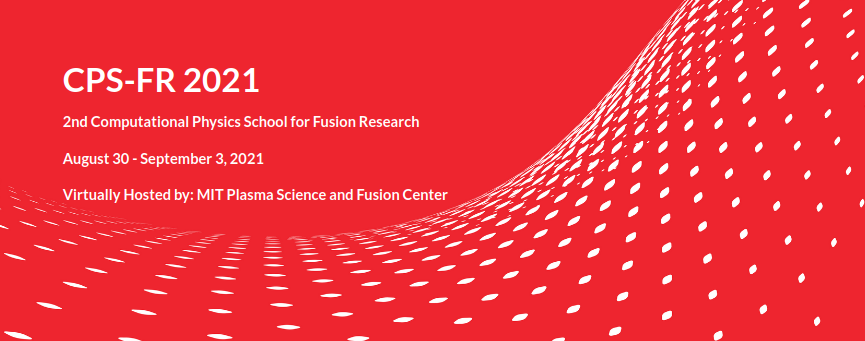PSFC hosts the 2nd Computational Physics School for Fusion Research
Second edition of the PSFC summer school goes virtual due to the pandemic

The 2021 edition of the Computational Physics School for Fusion Research (CPS-FR) faced the challenges brought about by the COVID-19 pandemic. Originally conceived as an in-person event designed to facilitate extensive interaction and hands-on learning, the program had to undergo a significant transformation. This adaptation involved shifting the entire school to a virtual format conducted on the Zoom platform and adopting an open application process.
Taking place from August 30 to September 3, 2021, the virtual CPS-FR managed to maintain its core objectives despite the change in format. The school remained dedicated to its mission of facilitating networking and offering practical training experiences. The transition to a virtual environment, while challenging, allowed the school to expand its reach and impact.
To support the virtual program, the dedicated CPS-FR 2021 website was created. To ensure that participants from various time zones could engage effectively, the program committee structured the lecture series within a four-hour window, starting at 10 a.m. in the Eastern Time Zone. All lectures were meticulously recorded, providing a valuable resource for participants and anyone interested in the subject matter. These recordings are available through a publicly shared Dropbox folder.
Recognizing the importance of interactivity and community engagement, a Discord server was set up. This platform facilitated Q&A sessions, allowed participants to discuss the lectures, and encouraged social interaction among attendees. The use of Discord proved to be an excellent choice, creating a space for asynchronous collaboration and discussion while preserving the school’s original goals.
Approximately 45 participants were granted access to the PSFC GPU local cluster, and a dedicated queue was established to ensure that both participants and lecturers could efficiently utilize computational resources throughout the school week. This practical component of the school was crucial in providing hands-on experience and enabling participants to apply the knowledge gained during the lectures.
The participants of the virtual CPS-FR represented a diverse group. More than 60% of the attendees were graduate-level students and postdocs, highlighting the school’s appeal to individuals pursuing advanced degrees and early career researchers. Notably, the school also attracted significant interest from undergraduate students, making up 25% of the total participants. This demonstrates the program’s broad appeal and accessibility to individuals at different stages of their academic journey.
The school’s global reach was evident in its diverse participant base. Attendees hailed from various corners of the world, including countries like India, Costa Rica, different European nations, and the United States. The international character of the school further enriched the experience by bringing together a wide range of perspectives and experiences in the field of computational physics for fusion research.
Enjoy Reading This Article?
Here are some more articles you might like to read next: